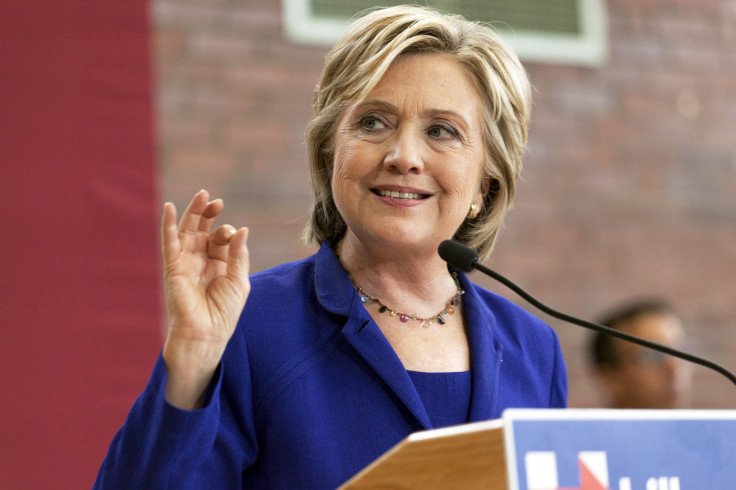Hillary Clinton Prescription Drug Plan Challenges Past Policies Of Bill And Hillary Clinton

Touting her commitment to lowering healthcare costs, Hillary Clinton this week unveiled a plan that she says will drive down the skyrocketing price of prescription drugs. The initiative from the Democratic presidential candidate was billed as a challenge to the pharmaceutical industry -- but it is also a rebuke of some of the major pharmaceutical policies of Bill and Hillary Clinton.
During her Iowa campaign event announcing the initiative, Clinton said she wants to allow Americans to purchase medicines from other countries at the lower prices charged there. “If the medicine you need costs less in Canada, you should be able to buy it from Canada, or any country that meets our safety standards,” she said.
As a New York senator, Clinton voted for legislation to allow importation. However, when Congress in 2000 passed such bipartisan legislation, Bill Clinton’s administration used its executive authority to prevent an importation program from being implemented. At the time, Clinton’s administration said drugs imported from countries like Canada would be unsafe, later prompting bill proponents to demand to see evidence of mass Canadian casualties from fraudulent drugs. A federal judge recently ruled that the federal ban on importation invalidates Maine’s first-in-the-nation state statute designed to permit importation.
Candidate Clinton also said that government agencies like Medicare should be able to use their market power to negotiate lower drug prices and that pharmaceutical companies should be able to retain exclusive patent rights to medicines for only a “reasonable period of time.” But as secretary of state, her aides worked on -- and she repeatedly promoted -- the Trans-Pacific Partnership, a partnership that critics say includes provisions that could thwart such proposals.
The consumer watchdog group Public Citizen said a recent leak of the still-secret partnership's text shows it would “reduce the capability of the government to negotiate lower prices” by subjecting them to trade rules. According to the Center for American Progress -- which has close ties to the Clintons and is run by Hillary Clinton’s former policy aide -- the Clinton-backed partnership’s patent provisions “will raise drug prices and hinder access to critical medications.” Economist Dean Baker at the left-leaning Center for Economic and Policy Research has written that those pact provisions build off World Trade Organization rules backed by President Clinton that toughened international patent protections for drugs.
Clinton’s plan also includes an effort to crack down on direct-to-consumer pharmaceutical advertising -- specifically, by preventing companies from writing off the expense of such ads on their taxes. “Other countries ban these ads because they are so often misleading,” she said. The United States’ full ban on such advertising was officially lifted in 1985, but, experts say, it was Bill Clinton’s administration in 1997 that made the policy changes that permitted the explosion of such ads in the United States. After that change, which loosened the rules about what must be in such ads, spending on the spots in the United States nearly quadruples. Today, the United States is one of the only industrialized nations to permit such ads.
In her remarks promoting her prescription drug plan in Iowa, Clinton also spoke of ongoing taxpayer support for pharmaceutical companies, and said she wants to see more “taxpayer money to fund innovation” in the pharmaceutical sector. But taxpayer funding for drug research has not resulted in lower-priced medicines for those taxpayers -- at least partly because the government gives pharmaceutical corporations the right to commercially market drugs developed with taxpayer dollars without requiring any price controls in return.
That lack of a guaranteed low price for drugs developed at taxpayer expense was a policy change implemented by Clinton appointees. In 1995, the Clinton administration actually repealed a longstanding rule that had required drugs developed with taxpayer resources to be offered to American consumers at a "reasonable” price. In 2000, Senate Republicans voted to kill a measure that would have rescinded the Clinton administration’s change; they were supported by senior Democrats, including Joe Biden and Joe Lieberman.
Hillary Clinton’s campaign did not respond to International Business Times questions about her prescription drug plan.
© Copyright IBTimes 2024. All rights reserved.






















